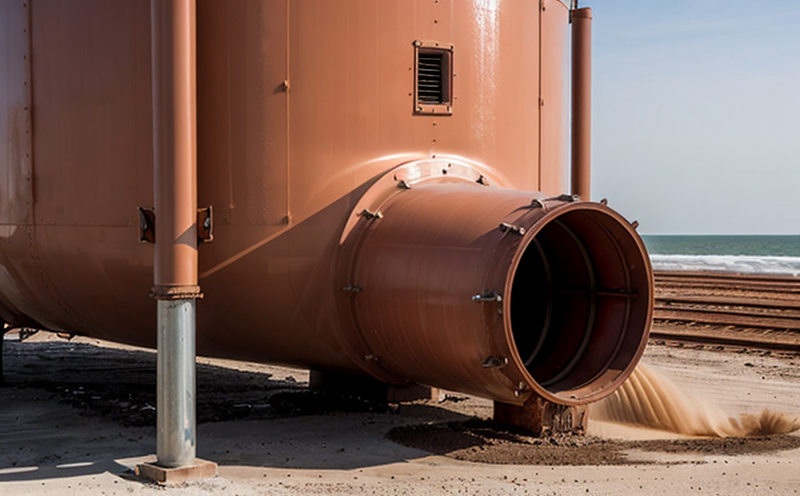Corrosion resistance in high-temperature environments
Corrosion Resistance in High-Temperature Environments Protecting Your Business with Eurolab
In the pursuit of innovation and efficiency, industries often push the boundaries of whats possible by operating at increasingly high temperatures. While this can lead to significant productivity gains, it also introduces a critical challenge corrosion resistance in high-temperature environments. Failure to mitigate this risk can result in costly equipment damage, downtime, and even safety hazards.
At Eurolab, we understand the importance of protecting your business from the ravages of heat-induced corrosion. Our expert team offers a comprehensive laboratory service designed to assess and enhance the corrosion resistance of materials under extreme temperatures. In this article, well delve into the world of high-temperature corrosion, exploring its causes, consequences, and the benefits of our laboratory testing services.
What is Corrosion Resistance in High-Temperature Environments?
Corrosion resistance in high-temperature environments refers to a materials ability to withstand degradation when exposed to heat, moisture, and other environmental factors. This can occur at temperatures above 100C (212F), where the effects of thermal expansion, oxidation, and chemical reactions accelerate corrosion processes.
High-temperature corrosion is a significant concern for industries such as
Power generation Fuel cells, gas turbines, and steam generators
Aerospace Jet engines, rocket components, and structural materials
Chemical processing Reactors, heat exchangers, and storage tanks
Automotive Engine components, exhaust systems, and brake assemblies
The Importance of Corrosion Resistance in High-Temperature Environments
Inadequate corrosion resistance can have severe consequences for your business
Equipment failure Damage to machinery, pipelines, or other critical infrastructure
Downtime and production loss Costly delays due to maintenance, repair, or replacement
Safety risks Potential explosions, fires, or exposure to hazardous substances
Environmental concerns Release of toxic materials into the environment
The Benefits of Using Corrosion Resistance in High-Temperature Environments
Eurolabs laboratory services provide a range of benefits for businesses seeking to optimize their corrosion resistance
Predictive maintenance Identify potential issues before they occur, minimizing downtime and costs
Improved product performance Enhance the lifespan and efficiency of equipment, reducing the need for frequent repairs or replacements
Reduced environmental impact Minimize the risk of chemical releases and other environmental hazards
Compliance with regulations Ensure adherence to industry standards and regulatory requirements
Key Benefits of Eurolabs Laboratory Services
Our expert team offers a comprehensive range of laboratory services, including
Material selection and testing Identify the most suitable materials for high-temperature applications
Corrosion monitoring and analysis Monitor corrosion rates and analyze data to optimize maintenance schedules
Accelerated testing and evaluation Simulate real-world conditions in our laboratory to assess material performance
Advantages of Eurolabs Corrosion Resistance Services
Our services provide a range of advantages, including
Improved material selection Identify the most suitable materials for high-temperature applications
Enhanced predictive maintenance Reduce downtime and costs through proactive maintenance planning
Compliance with regulations Ensure adherence to industry standards and regulatory requirements
Reduced environmental impact Minimize the risk of chemical releases and other environmental hazards
QA Frequently Asked Questions about Corrosion Resistance in High-Temperature Environments
What is the main cause of corrosion in high-temperature environments?
Corrosion in high-temperature environments is primarily caused by thermal expansion, oxidation, and chemical reactions.
How can I determine if my materials are suitable for high-temperature applications?
Eurolabs laboratory services provide material testing and evaluation to assess suitability for high-temperature use.
Can corrosion be prevented entirely in high-temperature environments?
While complete prevention is challenging, our laboratory services can help minimize the risk of corrosion through predictive maintenance and optimized material selection.
What are the consequences of inadequate corrosion resistance in high-temperature environments?
Inadequate corrosion resistance can lead to equipment failure, downtime, safety risks, and environmental concerns.
Conclusion
Corrosion resistance in high-temperature environments is a critical concern for businesses operating at extreme temperatures. At Eurolab, we offer expert laboratory services designed to mitigate this risk, ensuring the reliability and efficiency of your operations. By leveraging our expertise and comprehensive testing capabilities, you can
Improve material selection and performance
Enhance predictive maintenance planning
Reduce environmental impact and compliance risks
Protect your business from costly equipment damage and downtime
Dont let corrosion compromise your business. Contact Eurolab today to learn more about our laboratory services and take the first step towards a safer, more efficient future.




